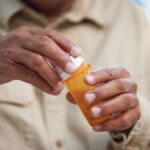After watching a loved one struggle with a drug or alcohol addiction, seeing them complete a treatment program can be a wonderful relief. But as they prepare to come home, you might feel a range of emotions, from excitement to dread. These feelings are normal. After all, you want to make it possible for them to maintain their sobriety long-term. Although you cannot control their choices, you can do several things to help your loved one after they return home.
First, remember that rehab is not a cure. The recovery process is a lifelong journey that takes commitment, dedication, and hard work everyday.
Here are eleven more things you can do to help.
- Educate yourself about addiction before your loved one returns from rehab. Besides learning about addiction in general, learn about the specific substance your loved one used, triggers, and likelihood of relapse. Doing this will help you be aware of potential triggers your loved one may encounter.
- Before your loved one comes home, remove any alcohol or drugs from your home. If you need medications, keep them out of sight in a locked area.
- Keep your focus on the future instead of the past. Early recovery is not the time to deal with old issues. Keep encouraging the person to work on past issues with their therapist.
- Understand that your loved one needs to attend 12-Step meetings, support groups, or outpatient rehab programs as part of their recovery process. They need to stay focused on their sobriety and stay away from stressors to avoid relapse. If their choices seem selfish, it is because they must prioritize self-care during this time. As recovery continues, your loved one will begin focusing on other areas of their recovery, such as mending relationships, being part of social activities, and taking up hobbies.
- Encourage your loved one to keep up with their ongoing treatment. They need to keep working with their therapist or counselor to identify and address the underlying cause of their substance use disorder. By encouraging them to attend sessions and meetings, you are showing your support of their sobriety. Offer to take them if they are unable to drive.
- Asking your loved one a lot of questions when they come home can make them feel like you are nagging or putting them under pressure. Naturally, you are curious about rehab. They will tell you what they want you to know over time.
- Before recovery, your loved one spent most or all of their time thinking about, getting, and using their substance of choice. Now they need to fill that time with meaningful activities to keep them from focusing on negative emotions and thinking about drugs or alcohol. Taking up a new hobby or rekindling interest in an old one is rewarding and a good way to relieve stress. Finding something you and your loved one can do together is a great way to reconnect while making new happy memories.
- Practicing good self-care is a critical part of addiction recovery. Let your loved one know that taking good care of themselves is not being selfish. It is treating themselves with respect and love. It is giving themselves what they need. By encouraging them to take good care of their mental and physical health, you show you care about their well-being. By making healthy choices, such as eating nutritious foods, getting enough sleep, and exercising, your loved one will feel less stressed and be happier and healthier.
- Addiction not only affects the person suffering from the disease, but it also affects everyone close to them. Family members often neglect their own needs, putting the needs of their loved ones first. When this lack of self-care happens, it can result in anxiety, depression, and illness. By putting yourself first and taking care of your own mental, physical, and emotional needs, you will feel better and be able to help your loved one.
- Creating boundaries for your loved one is essential. For example, let them know you will not lie for them. Work together to set up the rules for your loved one, yourself, and family members.
- Research studies show the support of family and friends makes a big difference in a loved one’s recovery. Acknowledge the progress your loved one is making. Tell them you are proud of how they are doing and how far they have come. Let them know you are grateful for their recovery.
Are You Struggling with Addiction?
If you or someone you care about is struggling with addiction, you may feel hopeless and overwhelmed. But there is hope. Addiction is a treatable chronic brain disease. At Canyon Vista Recovery Center, located in Mesa, Arizona, our skilled professionals can help you take back control of your life. Using a combination of evidence-based addiction treatments, psychiatric and medical care, and holistic therapies, we will guide you along the path to recovery.











